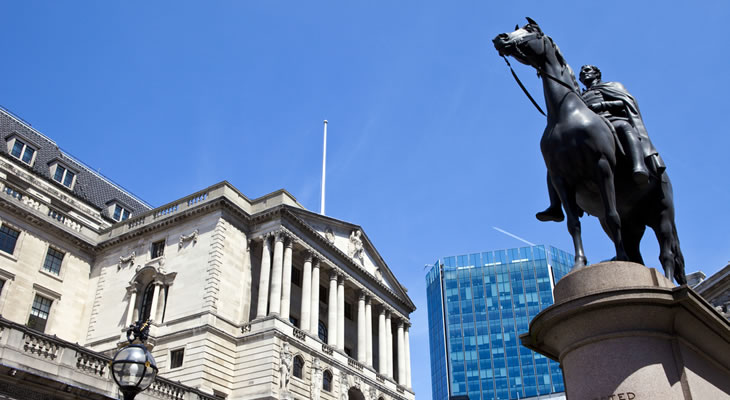Emergency BoE Interest Rate Cut Lifts Pound Euro (GBP/EUR) Exchange Rate from Lows
As the Bank of England (BoE) delivered another emergency interest rate cut on Thursday evening the Pound Sterling to Euro (GBP/EUR) exchange rate found renewed support.
The GBP/EUR exchange rate climbed away from its twelve-year low in the wake of the surprise policy move, buoyed by this latest escalation in the response to the Covid-19 crisis.
With the Treasury also expected to announce additional measures intended to support the UK economy in the days ahead the downside pressure on Pound Sterling (GBP) eased.
After several days of selling pressure GBP exchange rates staged a solid recovery, even though fears of a potential UK recession remain.
Although February’s UK public sector net borrowing data showed a surprise surplus investors remain wary of the likelihood of government debt ballooning in the coming months, limiting the potential for GBP/EUR exchange rate gains.
Fears of Eurozone Contraction Set to Limit EUR Exchange Rate Support
Worries over the outlook of the Eurozone economy also continued to mount ahead of the weekend, with January’s current account surplus narrowing sharply.
With all signs pointing towards a weakening in the fiscal health of the currency union investors saw little reason to buy into the Euro (EUR) on Friday.
While the European Central Bank (ECB) and Eurozone officials are clearly willing to put greater effort into limiting the economic downturn fears of a significant slowdown remain.
The mood towards the single currency looks set to sour further on Tuesday with the release of March’s initial Eurozone manufacturing and services PMIs.
Forecasts point towards economic activity weakening sharply across the board, flagging up the likelihood of an imminent growth contraction.
As long as the majority of the PMIs fall below the neutral baseline of 50 this could help the GBP/EUR exchange rate push further away from its recent lows.
Slump in UK PMIs Forecast to Fuel Further Pound Weakness
Even so, the Pound may also come under pressure if the latest UK manufacturing and services PMIs also show signs of increased weakness.
Unless the UK economy can demonstrate evidence of resilience in the face of weaker global trade and the disruption stemming from Covid-19 support for the Pound looks set to diminish.
With markets already bracing for the possibility of the economy contracting in the first quarter of 2020, though, the ultimate impact of the PMIs may prove limited.
After the significant run of losses seen over the course of the week GBP exchange rates could find a temporary floor.
However, if investors see reason to doubt the effectiveness of the latest interventions from the BoE and Treasury this may limit the potential for the Pound to extend its recovery.
A lingering sense of global market risk aversion could also continue to pressure the GBP/EUR exchange rate for the foreseeable future.


Comments are closed.